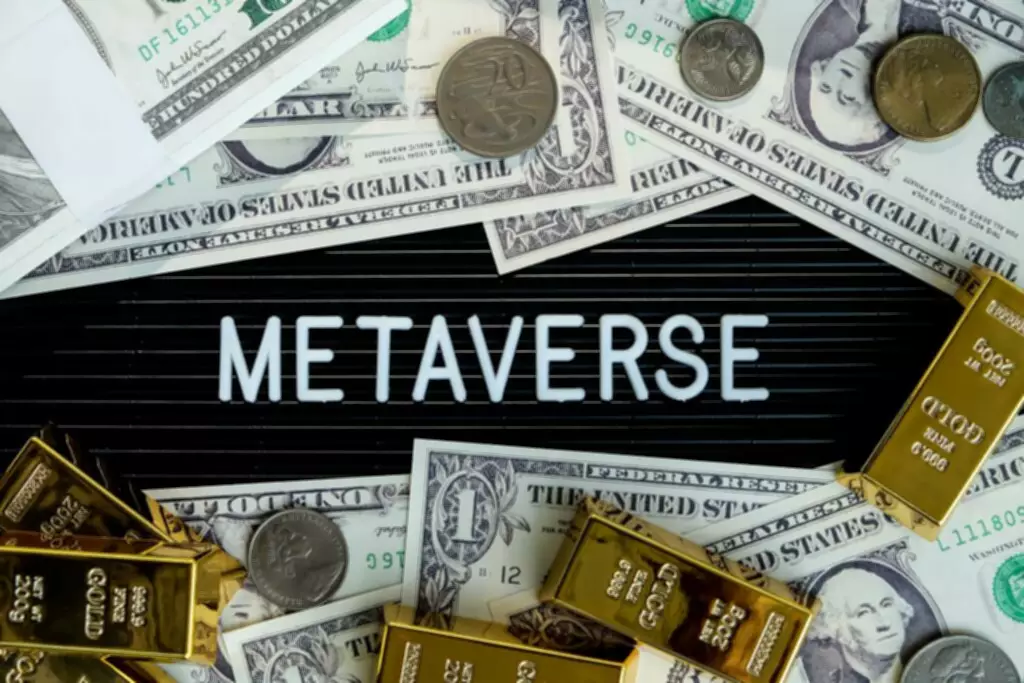Content
Keep reading to learn more about how to choose a CRM for your company. CRMs allow you to gather, organize, and analyze data about your customers. You can use that data to learn more about your target audience, enabling you to more effectively market to them. Flexible enough to handle your business process, adaptive to changes according to the growth of the business.

When you turn company data over to a CRM, you are placing your most precious resource in the vendor’s hands. Here are 3 common mistakes made by organizations choosing a CRM solution. Avoiding these pitfalls will help to ensure that your CRM investment pays high dividends in the years to come. If you’ve been working from spreadsheets and sticky notes, you’ll be amazed by the array of charts, metrics, and reports a CRM can generate. The challenge is that these often take a lot of time, and involve a lot of headaches trying to make disparate systems “talk” to each other.
things to consider when choosing a CRM
Speak with industry contacts and colleagues about customer relationship management software they use or have used. Take an inventory of what worked types of crms and what didn’t to include in the assessment. They can then tell if their product can accomplish the workflow envisioned, or suggest modifications.
- So, that the flow of information in the organisation is smooth and companies can use the data to understand customers’ interest, expectations and preferences.
- CRM systems have become so widespread that providers have entered niche markets with software designed for specific industries or based on company size.
- Ensure that the CRM has excellent customer service ratings to back up their product.
- Keep reading to learn more about how to choose a CRM for your company.
- Choosing the one suitable for your business needs can be a bit tricky.
Hundreds of options can seem overwhelming and make it difficult to pick the right solution. Use these strategies to help you find the CRM software that is best for your business. The feature set you choose will vary depending on the vendor, your goals, needs, and customer preferences. As the name implies, this type of CRM enables facilitating all operations relevant to the customer data you collect to improve support service for your existing and potential customers. It mainly automates functions such as – Marketing automation for promoting your products and services with effective marketing campaigns, channels and accurate processes to reach potential customers.
Company
The site’sreviews include pros and cons for some of the most popular CRM systems along with an exhaustive list of CRM software vendors. If you’re starting from the very beginning, review sites that aggregate and compare several systems will save time and make you aware of options you might not have found on your own. For businesses both large and small, the practice of tracking customers through piles of paper and Excel spreadsheets is quickly becoming a thing of the past. A good CRM system goes even further as it enables companies to design and deliver targeted marketing campaigns and to generate a meaningful cost-benefit analysis for each initiative. Tony Loeb started his career in Hotel marketing in 2001 as a webmaster, then quickly became the Technical Director of a web agency specialized in the hotel industry. Through all these meetings, it became clear that not everyone had the same need.

At this point, with your handy little lists of systems, features, and integrations, you should have stumbled upon one or two CRM systems that tickle your pickle. Most CRM systems worth their salt – the ones that believe in what they provide anyway – offer a free trial of their system. Typically, a free trial is around 14 days long, which is plenty of time to try out the features you require.
Network with CRM Experts and Colleagues
If you need it, ask your new CRM-support team whether it’s possible to get those features yourself. It’s software helps run your business, specifically by organising and centralising customer data and automating different lead generation, lead nurturing, and outreach processes. It keeps all your business bits in one place, and that’s what you need when all your business bits https://xcritical.com/ are growing exponentially. If all goes well, CRM scales the growth of your business through accurate analytics, insights, and forecasting. It’s unreasonable to expect your sales team to remember everything about each of your customers. With the right CRM tools and procedures, you’ll have everything you need to boost customer loyalty and company revenue, no failure required.
There’s no one-size-fits-all formula for how to choose the right CRM. Every business is unique and will define CRM success differently. To find the best software for you, evaluate your business processes and come up with a CRM feature checklist. The best CRM solution will meet those requirements, as well as being secure, customizable, user-friendly, and cost-effective.
The community management CRM
Irrespective of the size, every companies tries to maximise the use of all the information they obtain about their customers. A powerful CRM software enables the companies to streamline that process and achieve the goal of improving customer service experience and increased revenue growth. CRM is an effective tool that can improve efficiency, collaboration, and customer relationships right out-of-the-box. However, it is unlikely to match your business processes and needs precisely. What’s more, you don’t want your CRM functioning exactly like your competitors. The ideal CRM will allow for some tweaks to make the solution truly yours.

Our Customer Success team offers personalized training and guidance to ensure a successful CRM implementation. Integrate Pipeline CRM into your typical workflow and keep using your favorite tools. Customer Service –A sales rep looks at his mobile CRM when walking in to see his customer. He notices the customer has called his sales technical support to report a problem.
The centralized database CRM
You don’t want to choose a cumbersome tool that employees resent using. After your evaluations, you will know what to look for in a CRM. You can use the feedback from managers, staff, and customers to develop your CRM selection criteria. From there, you can create a shortlist of vendors that meet your requirements.
Basically, understanding the customer’s journey, collecting information through data mining regarding new trends, and identifying patterns in data sets. This leads to better decision making process for the business. Analytical CRM enable companies to store, process and centralize their data in one easy to use system. So, that the flow of information in the organisation is smooth and companies can use the data to understand customers’ interest, expectations and preferences.
Some providers offer a free version of their software, but functionality is always limited. Take your list of answers to the questions, your list of CRM features, and your list of preferred integrations and start looking at suitable CRM platforms for your business. This allows you to avoid possible pitfalls that you might have missed while testing а CRM after just а week or two. You can find reviews over at G2 or Capterra – check them both out. The same but different – after thinking about features, you’ll want to start thinking about the integrations you need for your CRM system.
Q&A: What are the most important CRM features for small businesses?
We’re obviously biased with our favorite… Crmble – the easy CRM for Trello! But we realize it’s not for everyone, and we wanted to walk you through the types of CRMs that exist and criteria to help you decide which one is right for you. To figure it out, you just need to think through a couple of key questions.
Crack the sales formula with CRM Lab
Held all over the world, these conferences cover other valuable business tools and strategies while highlighting the strengths of their proprietary products. An added feature of conference attendance is access to experts in the CRM and marketing fields who use test cases to help leverage the system you choose for the most benefit. The community management CRM, for the management of social networks, is as useful for the marketing department as for the sales department or customer support. It allows you to publish posts, manage replies, set up reporting, schedule tasks, etc. In this digital age, data has become quite substantial in the pursuit of developing your business.
Take advantage of this by testing out all your top preferences. Once you’ve laid out your basic goals for your CRM, the next thing to clarify is your budget. This goes without saying, but you don’t want to spend time considering CRMs you aren’t willing to pay for. One of the very first things you should do before you begin considering CRM options is identify your business needs and goals. Basically, it means you need to figure out what exactly you intend to use your CRM for. By considering a handful of simple factors, you can more easily narrow down your options to the best of the bunch.
Check out our customers’ stories and how Pipeline CRM helped them on the journey to success. Start, develop, and grow relationships in your community and see your business prosper for years to come. Pipeline CRM makes it simple to manage everything about a job from estimate to happy customer — all in one place. Let your sales team focus on their most valuable task – closing deals! Automate everything else, including activity reminders, suggested next steps, etc. Pipeline CRM mobile CRM for iOS and Android helps you stay on top of your sales while you’re out doing your job.
On-premise CRMs, meanwhile, store everything on a physical hard drive at your location. Setting a budget allows you to quickly rule out anything that costs more than the maximum amount you’re willing to pay. It can also help you eliminate overly cheap platforms—if you set a relatively high budget, you probably don’t want to settle for a platform that only costs a tenth of that.
Next, create a list of customer needs (e.g., detailed knowledge of recent events, activity, complaints, calls, etc.); you’re looking for areas of overlap. These areas of overlap will provide you with a list of core features (i.e., your customers expect every support rep to know everything about their account). Collaborative CRMs focus on interaction management with customers through customer touchpoints. This communication is shared across internal departments of a company. It improves team collaboration, increases customer service and business management.
This is a disaster in the making because it increases transitional pain and it decreases adoption rates. When software is forced on your employees, it’s yet another thing they’re expected to learn. Many ‘smart’ personalization tools rely on aggregate data that’s generic and vague.